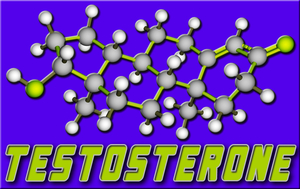Introduction
Somatostatin analogues, a class of medications used primarily to manage symptoms and control tumor growth in patients with neuroendocrine disorders, have been a cornerstone in the treatment landscape. However, their impact on sexual function, particularly in men, has garnered significant attention due to potential side effects that may affect quality of life. This article delves into the relationship between somatostatin analogues and sexual dysfunction in American men with neuroendocrine disorders, aiming to provide a comprehensive overview of the current understanding and implications for patient care.
Understanding Neuroendocrine Disorders and Somatostatin Analogues
Neuroendocrine disorders encompass a variety of conditions characterized by tumors that arise from cells of the neuroendocrine system. These tumors can secrete excessive amounts of hormones, leading to a range of symptoms. Somatostatin analogues, such as octreotide and lanreotide, are synthetic versions of the hormone somatostatin. They work by inhibiting the secretion of various hormones, thereby controlling symptoms and slowing tumor growth. While effective, these medications are not without side effects, one of which includes potential impacts on sexual function.
The Link Between Somatostatin Analogues and Sexual Dysfunction
Sexual dysfunction in men can manifest as erectile dysfunction, decreased libido, or issues with ejaculation. Studies have shown that somatostatin analogues may contribute to these problems by affecting hormone levels, particularly testosterone. Testosterone plays a crucial role in male sexual health, and its reduction can lead to sexual dysfunction. Research indicates that up to 30% of men on somatostatin analogues may experience some form of sexual dysfunction, a statistic that underscores the need for awareness and management strategies.
Clinical Evidence and Patient Experiences
Clinical trials and patient reports have provided valuable insights into the prevalence and severity of sexual dysfunction associated with somatostatin analogues. For instance, a study published in the *Journal of Clinical Endocrinology & Metabolism* found that men treated with octreotide reported a higher incidence of erectile dysfunction compared to those on placebo. Patient testimonials often echo these findings, with many expressing frustration over the impact of these side effects on their relationships and overall well-being.
Management and Mitigation Strategies
Addressing sexual dysfunction in men on somatostatin analogues requires a multifaceted approach. Healthcare providers should routinely screen for sexual health issues and discuss potential side effects with patients before initiating treatment. If sexual dysfunction occurs, options such as testosterone replacement therapy may be considered, although these should be tailored to the individual's overall health and the specifics of their neuroendocrine disorder. Additionally, psychological support and counseling can play a vital role in helping patients cope with these challenges.
Future Directions and Research Needs
The field of neuroendocrine disorder treatment continues to evolve, with ongoing research aimed at developing new therapies that minimize side effects such as sexual dysfunction. Future studies should focus on identifying risk factors for sexual dysfunction in men on somatostatin analogues and exploring alternative treatment modalities that preserve sexual health. Collaboration between endocrinologists, urologists, and mental health professionals will be essential in advancing our understanding and improving patient outcomes.
Conclusion
Somatostatin analogues have revolutionized the management of neuroendocrine disorders, but their impact on male sexual function remains a significant concern. By understanding the mechanisms behind sexual dysfunction and implementing effective management strategies, healthcare providers can enhance the quality of life for American men navigating these complex conditions. As research progresses, the hope is to find a balance between effective treatment and the preservation of sexual health, ensuring that patients can live fuller, more satisfying lives.
Contact Us Today For A Free Consultation

- Exploring Vasopressin Receptor Antagonists: A Breakthrough in Treating Sexual Dysfunction in Eugonadal Men [Last Updated On: February 26th, 2025] [Originally Added On: February 26th, 2025]
- Kisspeptin Therapy: A Promising Approach to Enhancing Sexual Function in American Men with Hypothalamic Hypogonadism [Last Updated On: March 4th, 2025] [Originally Added On: March 4th, 2025]
- Optimizing Cortisol-Testosterone Ratio: Key to Effective Erectile Dysfunction Management and Hormone Therapy [Last Updated On: March 7th, 2025] [Originally Added On: March 7th, 2025]
- Neurosteroid Modulation in Men: A Promising Treatment for Libido Disorders [Last Updated On: March 8th, 2025] [Originally Added On: March 8th, 2025]
- Optimizing Men's Hormonal Health with Aromatase Inhibitors: Balancing Testosterone and Estradiol [Last Updated On: March 9th, 2025] [Originally Added On: March 9th, 2025]
- Unveiling the Potential of DHEA in Combating Age-Related Sexual Dysfunction in Men: Insights from a Groundbreaking Study [Last Updated On: March 12th, 2025] [Originally Added On: March 12th, 2025]
- Exploring Melatonin's Impact on Circadian Rhythms and Sexual Health: A New Frontier in Hormone Therapy for American Males [Last Updated On: March 13th, 2025] [Originally Added On: March 13th, 2025]
- Evaluating hCG Monotherapy and Testosterone Replacement Therapy: Impacts on Erectile Function in Men with Secondary Hypogonadism [Last Updated On: March 15th, 2025] [Originally Added On: March 15th, 2025]
- Testosterone Formulations: Pharmacokinetics and Impact on Sexual Function in American Males [Last Updated On: March 17th, 2025] [Originally Added On: March 17th, 2025]
- SARMs: A Promising Approach to Sexual Dysfunction in Aging American Males [Last Updated On: March 18th, 2025] [Originally Added On: March 18th, 2025]
- GnRH Modulation Therapy Enhances Sexual Desire in Men with HSDD: Clinical Trial Results [Last Updated On: March 18th, 2025] [Originally Added On: March 18th, 2025]
- Testosterone, Endothelial Function, and NO: Key to Male Sexual Health [Last Updated On: March 18th, 2025] [Originally Added On: March 18th, 2025]
- Ghrelin: Linking Appetite Regulation to Sexual Health in American Males [Last Updated On: March 19th, 2025] [Originally Added On: March 19th, 2025]
- Genetic Polymorphisms in Androgen Receptors Impact Hormone Therapy for Male Sexual Dysfunction [Last Updated On: March 20th, 2025] [Originally Added On: March 20th, 2025]
- Leptin Resistance Impacts Sexual Function in Men: Insights for Hormone Therapy [Last Updated On: March 20th, 2025] [Originally Added On: March 20th, 2025]
- Vitamin D's Role in Testosterone and Erectile Function in American Males [Last Updated On: March 20th, 2025] [Originally Added On: March 20th, 2025]
- Kiss1 Expression and Sexual Dysfunction in Aging American Males: Insights and Therapies [Last Updated On: March 21st, 2025] [Originally Added On: March 21st, 2025]
- Zinc Boosts Testosterone Therapy Efficacy for Sexual Dysfunction in American Men [Last Updated On: March 21st, 2025] [Originally Added On: March 21st, 2025]
- Bioavailable vs. Total Testosterone: Impacts on Sexual Function in Men's HRT [Last Updated On: March 21st, 2025] [Originally Added On: March 21st, 2025]
- Magnesium Levels Predict Response to Testosterone Therapy in American Males with ED [Last Updated On: March 21st, 2025] [Originally Added On: March 21st, 2025]
- Combined Phlebotomy and HRT: Enhancing Sexual Function in Males with Iron Overload [Last Updated On: March 22nd, 2025] [Originally Added On: March 22nd, 2025]
- Selenium's Role in Male Sexual Health and Hormonal Balance: Insights from American Studies [Last Updated On: March 22nd, 2025] [Originally Added On: March 22nd, 2025]
- Copper-to-Zinc Ratio Predicts Hormone Therapy Response in Male Sexual Dysfunction [Last Updated On: March 23rd, 2025] [Originally Added On: March 23rd, 2025]
- Optimizing Calcium-to-Magnesium Ratio Enhances HRT Outcomes in American Men with Sexual Dysfunction [Last Updated On: March 23rd, 2025] [Originally Added On: March 23rd, 2025]
- Iodine Deficiency, Thyroid Health, and Male Sexual Function: Multimodal HRT Outcomes [Last Updated On: March 23rd, 2025] [Originally Added On: March 23rd, 2025]
- Pituitary Microadenomas: Impact on Sexual Health and Hormone Therapy Solutions for American Males [Last Updated On: March 23rd, 2025] [Originally Added On: March 23rd, 2025]
- Boron Supplementation Boosts Testosterone and Sexual Health in Aging American Males [Last Updated On: March 23rd, 2025] [Originally Added On: March 23rd, 2025]
- Chromium Supplementation Enhances Insulin Sensitivity and Sexual Function in Men on Testosterone Therapy [Last Updated On: March 23rd, 2025] [Originally Added On: March 23rd, 2025]
- Opioid-Induced Endocrinopathy: Comparing Hormone Replacement Therapies for American Males [Last Updated On: March 24th, 2025] [Originally Added On: March 24th, 2025]
- Hormone Therapy Responses in Testicular Failure vs. Secondary Hypogonadism: A Comparative Analysis [Last Updated On: March 24th, 2025] [Originally Added On: March 24th, 2025]
- Smoking's Impact on Male Sexual Health: Mechanisms and Mitigation Strategies [Last Updated On: March 24th, 2025] [Originally Added On: March 24th, 2025]
- Hemochromatosis-Induced Hypogonadism: Enhancing Sexual Function with Combined Therapy in American Males [Last Updated On: March 24th, 2025] [Originally Added On: March 24th, 2025]
- Managing Sexual Dysfunction in Klinefelter Syndrome: Hormonal and Psychological Approaches [Last Updated On: March 24th, 2025] [Originally Added On: March 24th, 2025]
- Traumatic Testicular Injury: Sexual Dysfunction and Hormone Replacement Therapy Insights [Last Updated On: March 24th, 2025] [Originally Added On: March 24th, 2025]
- Alcohol-Induced Testicular Dysfunction: Benefits of Abstinence and Hormone Therapy [Last Updated On: March 24th, 2025] [Originally Added On: March 24th, 2025]
- NAFLD in American Males: Hormonal and Sexual Health Impacts and Multimodal Treatment [Last Updated On: March 24th, 2025] [Originally Added On: March 24th, 2025]
- Marijuana Use and Male Sexual Dysfunction: Hormonal Impacts and Therapy Options [Last Updated On: March 24th, 2025] [Originally Added On: March 24th, 2025]
- Delayed Puberty's Impact on Adult Sexual Function and Hormone Therapy Timing [Last Updated On: March 25th, 2025] [Originally Added On: March 25th, 2025]
- CPAP and Hormone Therapy Enhance Sexual Health in American Males with OSA [Last Updated On: March 25th, 2025] [Originally Added On: March 25th, 2025]
- Cryptorchidism: Impact on Sexual Health and Hormone Therapy Management in American Males [Last Updated On: March 25th, 2025] [Originally Added On: March 25th, 2025]
- Comparing Hormone Therapies for Sexual Function in Post-Orchitis Testicular Atrophy [Last Updated On: March 25th, 2025] [Originally Added On: March 25th, 2025]
- Mumps Orchitis and Testicular Atrophy: Impact on Sexual Function and Hormone Therapy in American Males [Last Updated On: March 25th, 2025] [Originally Added On: March 25th, 2025]
- Managing Obesity-Related Hypogonadism: Weight Loss vs. Hormone Therapy for American Males' Sexual Health [Last Updated On: March 26th, 2025] [Originally Added On: March 26th, 2025]
- Cushing's Syndrome in American Males: Sexual Health Recovery and Treatment Approaches [Last Updated On: March 26th, 2025] [Originally Added On: March 26th, 2025]
- Varicocelectomy and Hormone Therapy: Enhancing Sexual Function in American Males with Varicocele [Last Updated On: March 26th, 2025] [Originally Added On: March 26th, 2025]
- IBD's Impact on Male Sexual Health and Testosterone: A Comprehensive Overview [Last Updated On: March 26th, 2025] [Originally Added On: March 26th, 2025]
- Chronic Kidney Disease and Male Sexual Health: Optimizing Hormone Replacement Therapy [Last Updated On: March 26th, 2025] [Originally Added On: March 26th, 2025]
- HRT Long-Term Effects on Sexual Function in American Males with PADAM [Last Updated On: March 26th, 2025] [Originally Added On: March 26th, 2025]
- Managing Type 2 Diabetes and Sexual Health: Metabolic Control and Hormone Optimization [Last Updated On: March 27th, 2025] [Originally Added On: March 27th, 2025]
- Radiation-Induced Testicular Damage: Impacts and Hormone Therapy Solutions for Sexual Health [Last Updated On: March 27th, 2025] [Originally Added On: March 27th, 2025]
- Glucocorticoid vs. Testosterone Therapy for Sexual Dysfunction in American Men with Adrenal Insufficiency [Last Updated On: March 27th, 2025] [Originally Added On: March 27th, 2025]
- Hormone Replacement Strategies for Chemotherapy-Induced Hypogonadism in American Males [Last Updated On: March 27th, 2025] [Originally Added On: March 27th, 2025]
- Anabolic Steroid-Induced Hypogonadism: Restoring Sexual Health with Hormone Protocols [Last Updated On: March 27th, 2025] [Originally Added On: March 27th, 2025]
- Testicular Torsion: Impacts on Sexual Function and Hormone Optimization Recovery Strategies [Last Updated On: March 27th, 2025] [Originally Added On: March 27th, 2025]
- Managing RA and Sexual Dysfunction in American Males: Combined Anti-Inflammatory and Hormone Therapy [Last Updated On: March 28th, 2025] [Originally Added On: March 28th, 2025]
- Comparing Dopamine Agonists and Testosterone for Hyperprolactinemia in American Men [Last Updated On: March 28th, 2025] [Originally Added On: March 28th, 2025]
- Subclinical Hypothyroidism: Impact on Testosterone and Sexual Function in American Men [Last Updated On: March 29th, 2025] [Originally Added On: March 29th, 2025]
- Multiple Sclerosis and Male Sexual Dysfunction: Neurohormonal Treatment Approaches [Last Updated On: March 30th, 2025] [Originally Added On: March 30th, 2025]
- Parkinson's Disease and Male Sexual Health: Dopamine and Hormone Therapies Explored [Last Updated On: March 31st, 2025] [Originally Added On: March 31st, 2025]
- Alzheimer's, Cognitive Decline, and Sexual Dysfunction: Exploring Hormone Therapy in American Males [Last Updated On: April 2nd, 2025] [Originally Added On: April 2nd, 2025]
- HRT and Neuromodulation: Restoring Sexual Function in American Males with SCI [Last Updated On: April 2nd, 2025] [Originally Added On: April 2nd, 2025]
- HRT as a Promising Solution for SSRI-Induced Sexual Dysfunction in American Men [Last Updated On: April 2nd, 2025] [Originally Added On: April 2nd, 2025]
- Neuroendocrine Assessment and Hormone Therapy for Post-Stroke Sexual Dysfunction in Men [Last Updated On: April 2nd, 2025] [Originally Added On: April 2nd, 2025]
- Managing Antipsychotic-Induced Hyperprolactinemia: Strategies for Sexual Health in American Males [Last Updated On: April 5th, 2025] [Originally Added On: April 5th, 2025]
- 5?-Reductase Inhibitors: Sexual Dysfunction Recovery via Hormone Modulation in American Males [Last Updated On: April 6th, 2025] [Originally Added On: April 6th, 2025]
- Statins, Hormonal Changes, and Testosterone Therapy: Impacts on Male Sexual Function [Last Updated On: April 7th, 2025] [Originally Added On: April 7th, 2025]
- Beta-Blockers' Impact on Sexual Health in American Males: Exploring Mitigation Strategies [Last Updated On: April 7th, 2025] [Originally Added On: April 7th, 2025]
- Managing Sexual Dysfunction in Prostate Cancer Patients on GnRH Agonist Therapy [Last Updated On: April 8th, 2025] [Originally Added On: April 8th, 2025]
- Partial Hormone Replacement: A Strategy to Mitigate ADT-Induced Sexual Dysfunction in American Males [Last Updated On: April 9th, 2025] [Originally Added On: April 9th, 2025]
- Hypogonadism Treatments: Clomiphene Citrate vs. TRT Effects on Sexual Function and Fertility [Last Updated On: April 9th, 2025] [Originally Added On: April 9th, 2025]
- Radiotherapy-Induced Endocrine Dysfunction: Hormone Replacement and Sexual Health in American Males [Last Updated On: April 10th, 2025] [Originally Added On: April 10th, 2025]
- Optimal Timing and Types of HRT for Managing Post-Prostatectomy ED in American Males [Last Updated On: April 11th, 2025] [Originally Added On: April 11th, 2025]
- Aromatase Inhibitors in TRT: Managing Estrogen and Preserving Sexual Function [Last Updated On: April 12th, 2025] [Originally Added On: April 12th, 2025]
- hCG Monotherapy Enhances Sexual Function in American Males on TRT [Last Updated On: April 14th, 2025] [Originally Added On: April 14th, 2025]
- Anastrozole Enhances TRT Outcomes by Managing Estradiol-Related Sexual Dysfunction in Men [Last Updated On: April 15th, 2025] [Originally Added On: April 15th, 2025]
- Hormone Optimization Enhances PDE5 Inhibitor Efficacy in Hypogonadal Men with ED [Last Updated On: April 16th, 2025] [Originally Added On: April 16th, 2025]
- Enclomiphene vs. Testosterone Gel: Effects on Sexual Function in American Men with Hypogonadism [Last Updated On: April 17th, 2025] [Originally Added On: April 17th, 2025]
- Tamoxifen's Role in Managing Gynecomastia and Its Effects on Sexual Function in TRT [Last Updated On: April 17th, 2025] [Originally Added On: April 17th, 2025]
- Hormone Therapy Enhances ED Treatment: Synergistic Effects and Comprehensive Care [Last Updated On: April 17th, 2025] [Originally Added On: April 17th, 2025]
- Alprostadil Responsiveness Enhanced by Testosterone Normalization in American Men with ED [Last Updated On: April 18th, 2025] [Originally Added On: April 18th, 2025]
Word Count: 568





















